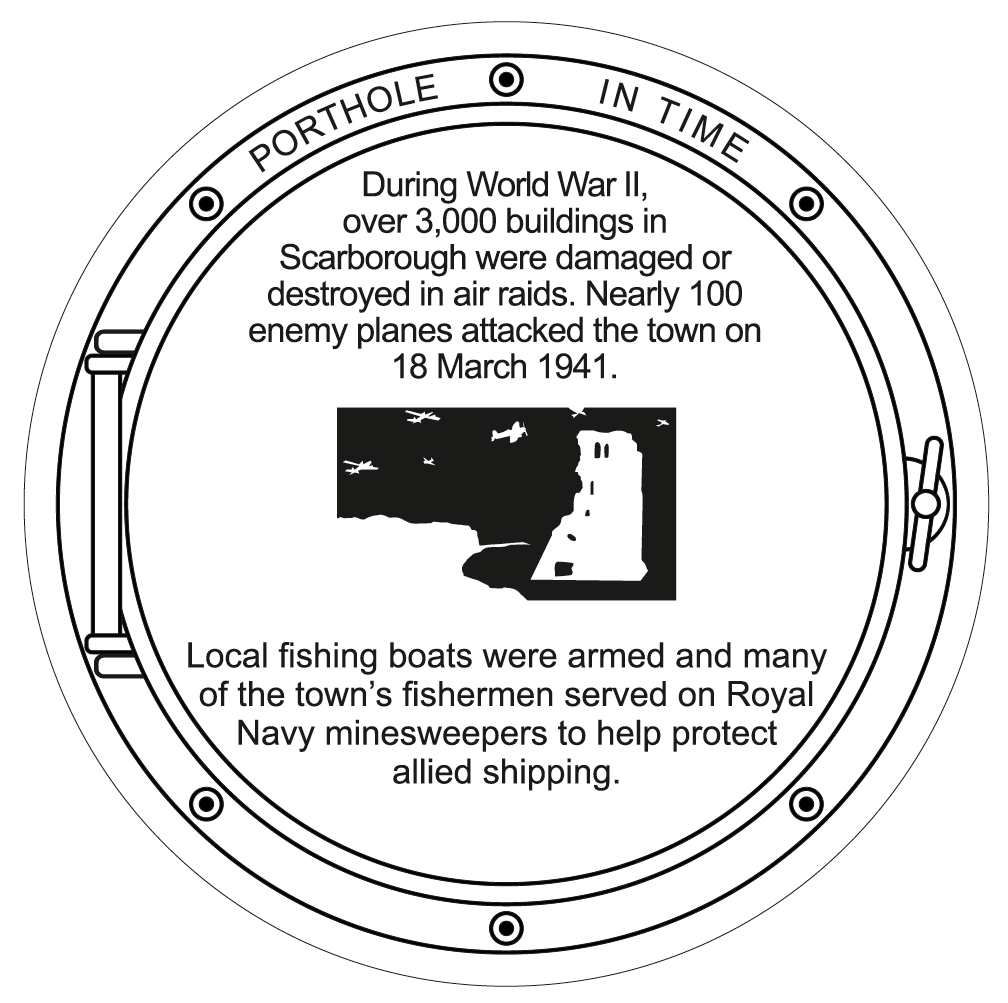
Scarborough endured more than 20 air raids during the Second World War. Very extensive damage was done when a single enemy ‘parachute mine’ was dropped on the Old Town on 10th October 1940, completely destroying 11 properties and damaging a further 500. Four residents died. In the ‘Scarborough Blitz’ of 18th March 1941, nearly 100 planes spent an uninterrupted 2 hours bombing the town with explosive and incendiary bombs. 29 were killed.
There has long been an ‘urban myth’ that Hitler instructed his forces to avoid hitting the Grand Hotel, as he wished to use it for himself. But the Grand was indeed bombed in the ‘March Blitz’. Most of the town’s larger hotels, including the Grand, were requisitioned by the Army or the RAF.
In 1940, local fishermen fought enemy planes from their armed fishing boats. Many younger fishermen joined the Royal Navy and deployed their fishing and navigational skills on navy minesweepers, a highly dangerous job. Tourism was badly affected by the fear of air raids, but also by the challenges of wartime travel, rationing and the fortification of the beaches against invasion.
Nearly 10,000 young evacuees were sent to Scarborough from the most at-risk ports and cities, including Hull, West Hartlepool, Middlesbrough and London. Many stayed till the end of the war and developed a lifelong love of the town.
Women played an important part in wartime Scarborough. They volunteered in the Women’s Voluntary Service, the Land Army and the National Fire Service, and they worked on the buses and in local industries such as Plaxton’s and Premier Engineering. In many ways, the war enhanced the status of women in local society, and the war saw the election of the town’s first female mayor.